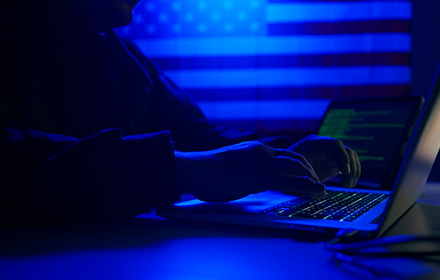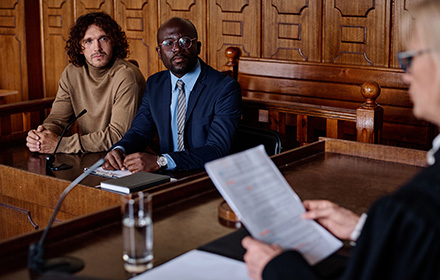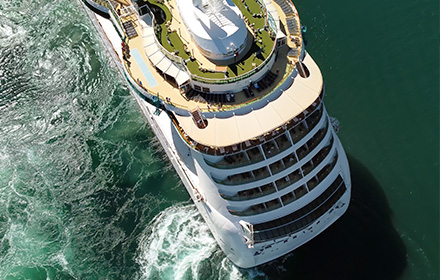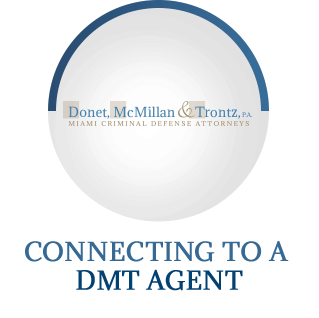What Laws Apply in Airports or Cruise Terminals?
June 03, 2025
Airports and cruise terminals are more than just transit points—they're high-security zones governed by a complex web of local, state, federal, and even international laws. Whether you're catching a flight or cruise, going through customs, it's important to understand what laws apply and what rights you have in these highly regulated environments.

The most important thing to remember is when you are on the other side of the border, prior to passing through customs, everyone's constitutional rights, even U.S. citizens have limited or no fourth-amendment rights. The majority of all searches regardless of the existence of probable cause are legal. These rules are relevant, especially in possession of child pornography or transportation of child pornography charges. Cell phones are randomly checked. Anyone in possession of child pornography will be charged with CSAM violations under both federal and state law. Never consent to the search of your cell phone. Do not provide the password or open the phone to investigators regardless of threats that are made to you.
Donet, McMillan & Trontz, P.A., our Miami-based criminal defense attorneys have decades of experience handling legal issues that arise in and around airports and cruise terminals-from TSA-related charges to customs violations, drug trafficking, and international law breaches. Understanding the legal landscape of airports can help you avoid unintended trouble and navigate any charges with clarity.
1. Federal Jurisdiction: TSA, FAA, and Homeland Security
Airports and cruise terminals in the United States fall under federal jurisdiction, especially in secure areas such as customs.
Some key federal authorities include:
- Transportation Security Administration (TSA): Oversees passenger and baggage screening; violations such as carrying prohibited items or interfering with TSA agents may result in federal fines or criminal charges.
- Federal Aviation Administration (FAA): Regulates aviation safety and behavior in airports and onboard aircraft.
- Department of Homeland Security (DHS): Responsible for broader national security, including immigration enforcement and terrorism-related concerns.

Many crimes committed in an airport and cruise terminals—especially in secure zones—are prosecuted at the federal level, even if they seem minor on the surface.
2. State and Local Laws Still Apply
Even in federally governed airports and cruise terminals, state and local laws still apply, especially in areas outside TSA-controlled zones, such as:
- Parking lots
- Public lobbies
- Restaurants and retail shops
- Ticket counters
For example, if a fight breaks out in a baggage claim area, state assault laws might be used to charge those involved. Likewise, theft, drug possession, or disorderly conduct in public areas of an airport can result in local criminal charges.
3. Customs and Immigration Laws at International Terminals
International terminals are governed by U.S. Customs and Border Protection (CBP), part of the Department of Homeland Security.
Failure to follow customs laws may result in:
- Seizure of undeclared ítems.
- Fines and penalties.
- Arrest for smuggling, trafficking, or misrepresentation.
- Possession and/or transportation of child pornography.
- Immigration-related consequences, including visa revocation or removal proceedings.
At Donet, McMillan & Trontz, P.A., we've defended travelers arrested after attempting to re-enter the U.S. with undeclared cash, prohibited medications, or items from duty-free shops in violation of federal import laws. These cases often involve complex procedures and require experienced legal guidance.

4. Airport Police and Security Enforcement
Most major airports have their own police departments or security units. These agencies enforce both federal and local laws, depending on the nature of the incident. They have the authority to:
- Detain individuals for investigation.
- Issue citations or make arrests.
- Coordinate with federal agencies like the FBI, DEA, ICE, or DHS when necessary.
It's critical to remain calm and cooperative if approached by airport law enforcement. Any interference, false statements, or aggressive behavior could lead to criminal charges.
5. Common Legal Issues That Arise in Airports and Cruise Terminals
Legal trouble in airports and cruise terminals can arise quickly and unexpectedly. Some of the most common offenses include:
- Possession of a firearm or weapon in a restricted area.
- Possession or transportation of child pornography.
- Attempting to carry liquids, explosives, or other contraband through TSA checkpoints.
- Verbal threats or aggression toward airline staff or other passengers.
- Drug trafficking or importation through international terminals.
- Immigration fraud, including the use of fake documents or overstaying visas.
- Theft, shoplifting, or credit card fraud in airport stores.
Even leaving your baggage unattended can lead to airport lockdowns, fines, or charges under suspicious behavior protocols.
6. How Donet, McMillan & Trontz, P.A. Can Help
Legal matters involving airports and cruise terminals are not like ordinary criminal cases. Federal agencies are often involved, and swift action is essential to avoid long-term consequences—especially if you're a traveler from abroad or someone facing felony-level charges.
At Donet, McMillan & Trontz, P.A., we:
- Represent clients in federal and state courts for airport or cruise-related charges.
- Help with customs violations, drug charges, and immigration issues.
- Provide rapid legal support for clients detained or arrested at Miami International Airport and other Florida transportation hubs such as the Port of Miami and Port Everglades.

With a deep understanding of federal law and years of experience in high-stakes criminal defense, our attorneys can help you navigate these complex cases and work toward the most favorable outcome possible.
Final Thoughts
The legal environment inside an airport is unlike any other public place. From federal regulations to local enforcement, a wide range of laws may apply depending on where you are, what you're doing, and whether your travel involves international borders.
If you've been arrested, detained, or accused of violating any law at an airport or cruise terminal, contact the legal team at Donet, McMillan & Trontz, P.A. as soon as possible. Your rights matter, and we're here to protect them.
📞 Call
(305) 444-0030 or visit
www.dmtlaw.com to schedule a confidential consultation today.





















